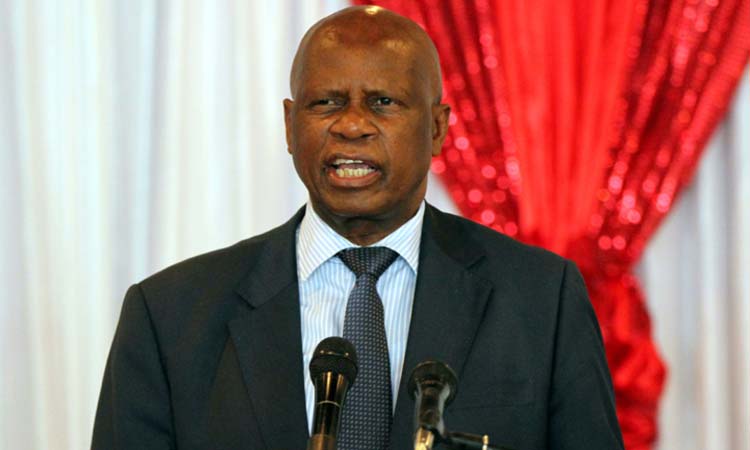
The Sunday Mail

Businesspeople using multiple pricing systems and those diverting cash to the black market will face jail as part of Government’s cocktail of measures to restore normalcy to the monetary system.
Further, companies that do not bank their takings will have operating licenses revoked.
Cabinet has approved the changes to the Bank Use Promotion and Suppression of Money Laundering Act, and the proposed amendments will be tabled in Parliament “soon”.
And the Reserve Bank of Zimbabwe is investigating all banks to establish who dumped a large amount of freshly printed and minted bond notes and coins on the black market just over a week ago.
The flooding of the new money caused a run on the parallel market value of bond notes, and triggered an increase in prices of basic commodities while fuel retailers struggled to cope with the sudden demand for petroleum products as people hoarded the commodities.
Businesspeople took advantage of this to further entrench a three-tier pricing system that sees them charging differently for goods and services when customers pay with United States dollars, bond notes or via plastic/mobile platforms.
Last week, Government moved to rid the streets of foreign currency dealers by gazetting regulations that impose a prison sentence of up to ten years for those selling cash.
Now the State wants to descend on businesspersons who solicit for their illegal services.
In a Ministerial Statement to Parliament last week, Finance and Economic Development Minister Patrick Chinamasa said, “The selling of money on the streets is not legal and it reduces the circulation of money in the formal sectors of the economy. Selling of money at a profit without a license is illegal.
“It is against this background that a Statutory Instrument under the Exchange Control Act has been gazetted to avoid the dealing in cash by unlicensed dealers and traders and to clarify the law on the matter.
“Relating to the pictures and videos of wads of bond notes which have been circulating on social media, investigations are being carried out to establish the sources of the new bond notes in the street. My ministry and the RBZ do not participate in buying currency from the streets.”
He said there was an indication of black market collusion between bank executives and currency dealers.
“Mrs Tariro Nyazema of Stanbic was caught red-handed, two or so months back, with US$30 000 that she had exchanged for bond notes at one of the bank’s branches.
“It is, therefore, our suspicion that this malpractice could be what is happening at other banks working in cahoots with unscrupulous
traders and retailers. It is for this reason that the RBZ is investigating all banks to root out this malpractice.
“The RBZ is also closing the net on the culprits captured in the video clips doing the rounds on social media, in the same way that they managed to cause the arrest of Tinashe Sikwila — the driver who was circulating the bond coin invoice from the South African mint.”
Minister Chinamasa said the Bank Use Promotion Act was being amended to give authorities more power to compel businesses to deposit surplus cash.
He went on, “The regulations require traders to accept all modes of payment modalities and prohibits multiple pricing which has become rampant within the economy.
“We are also working on the amendment to the Bank Use Promotion Act to strengthen its powers and these amendments whose Principles were approved by Cabinet shall be presented to (Parliament) in the next few weeks. My plea is that when these amendments are tabled, honourable members will give them expeditious passage.”
In addition to these measures, negotiations have been opened with the African Export-Import Bank for the extension of a US$300 million export incentive facility to spur production.
Last week, the RBZ introduced a US$600 million Nostro Stabilisation Facility from the Cairo-headquartered bank to address foreign currency shortages.
The nostro stabilisation facility will ease delays in processing of foreign payments by banks for procurement of necessary imports.
The facility will cover the foreign currency gap that widened after the 2017 tobacco marketing season ended.






